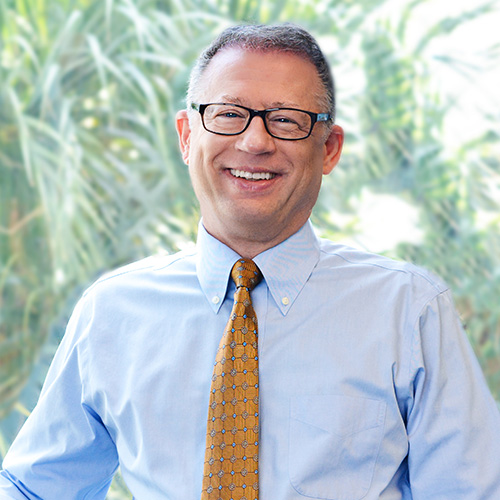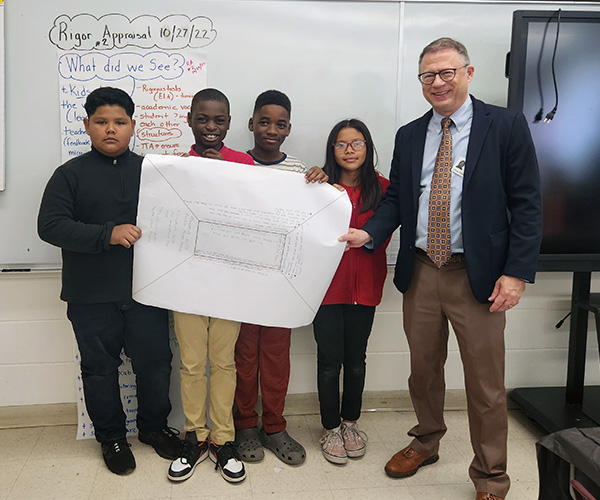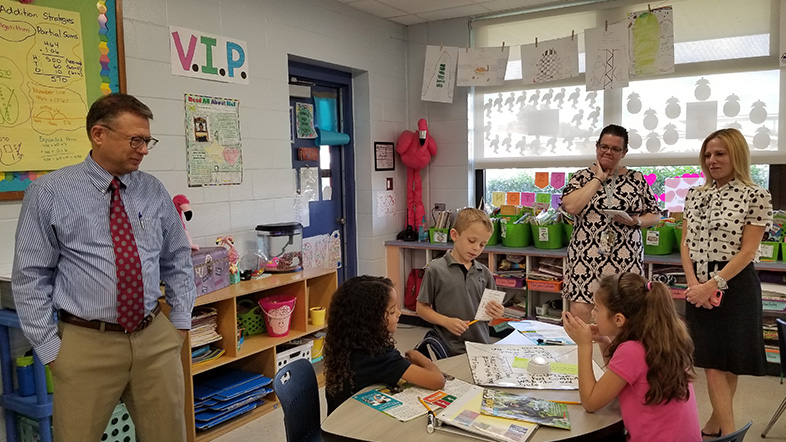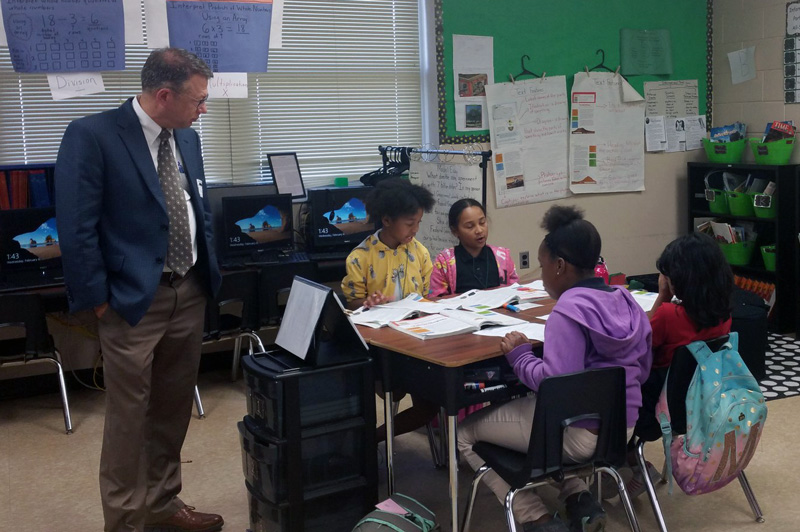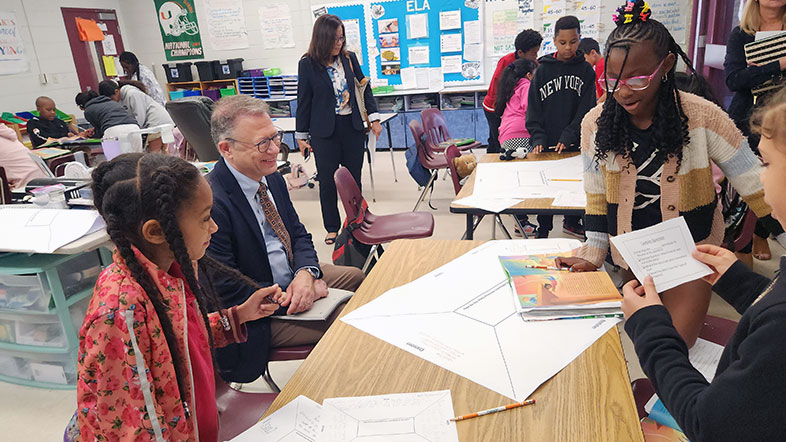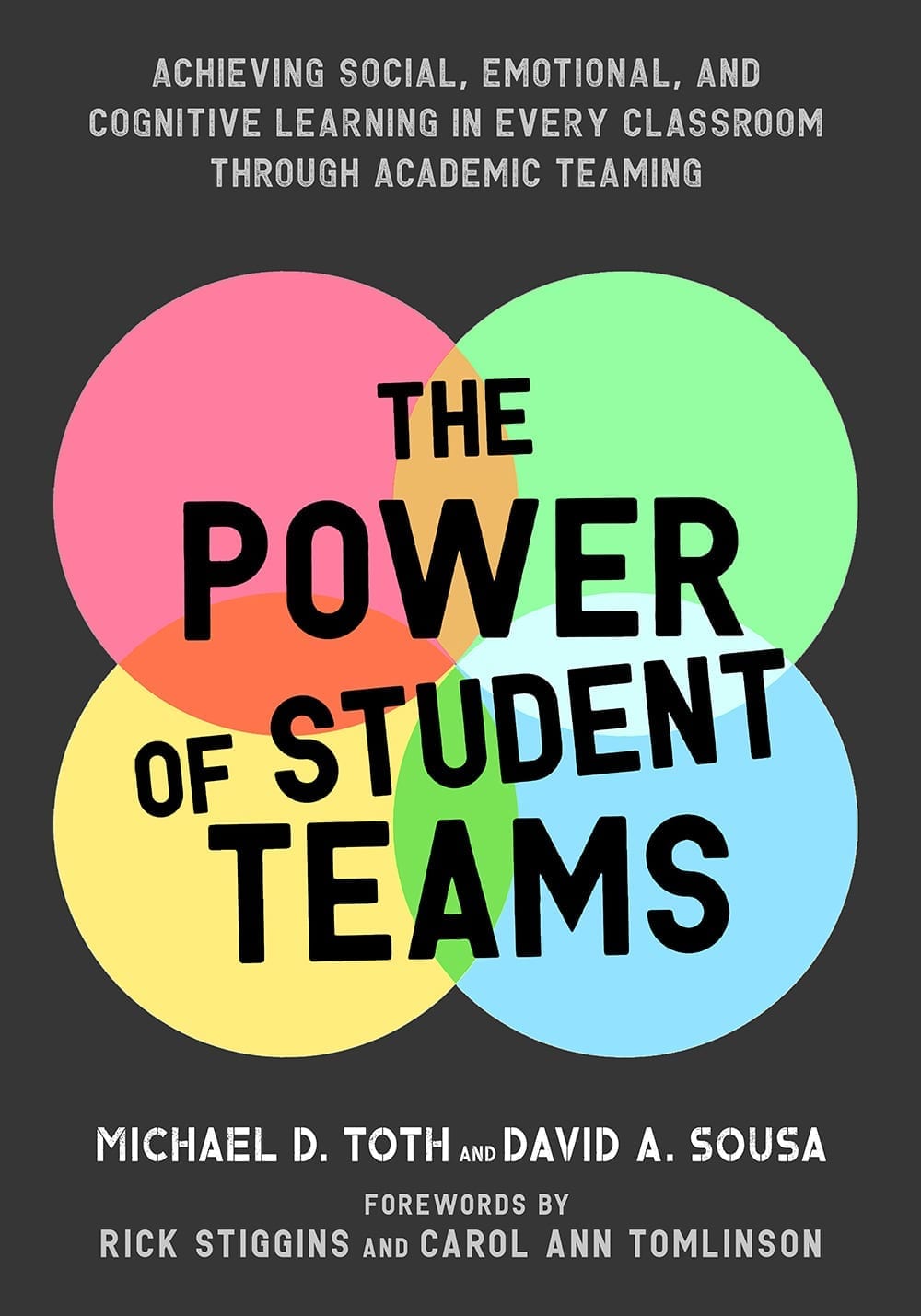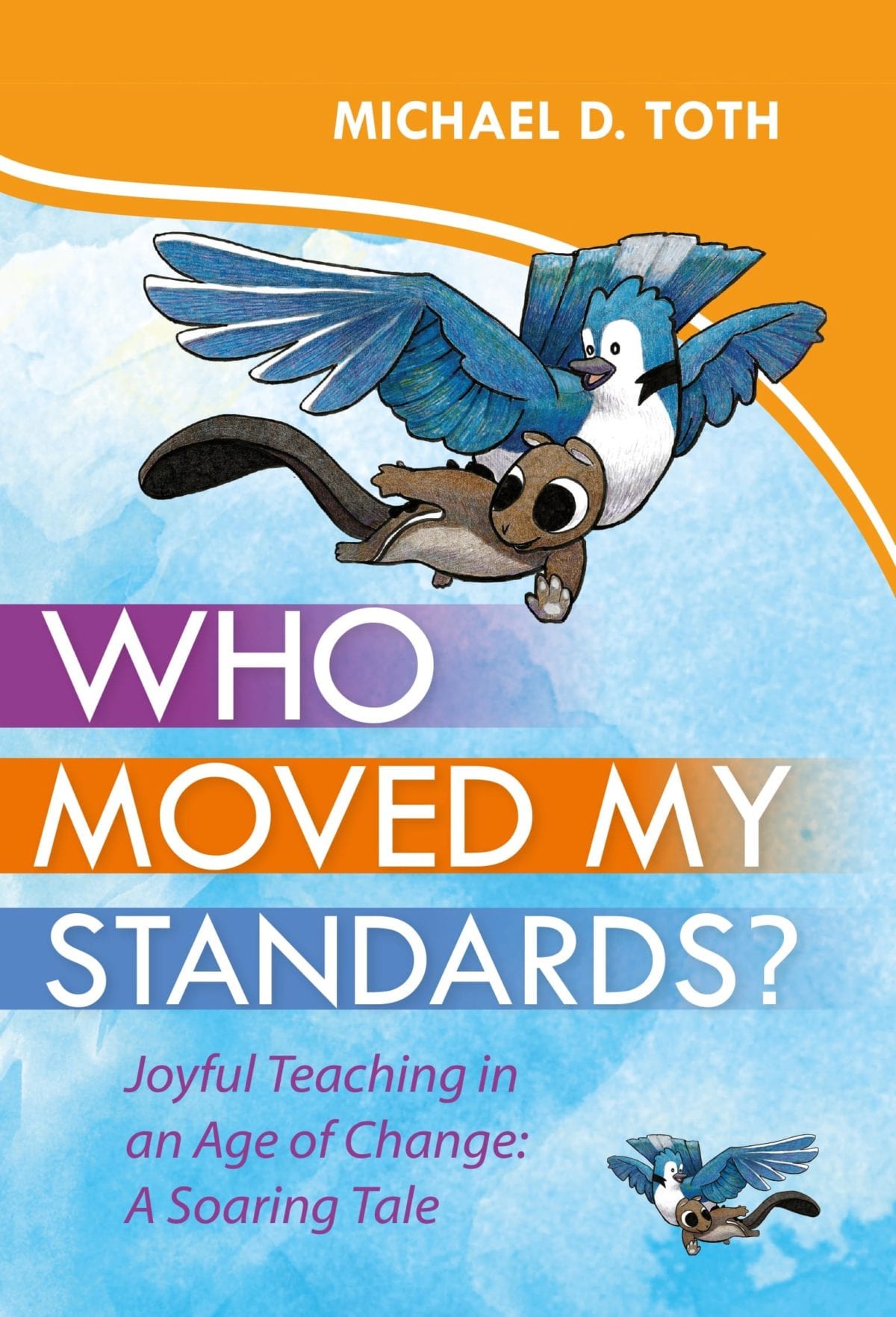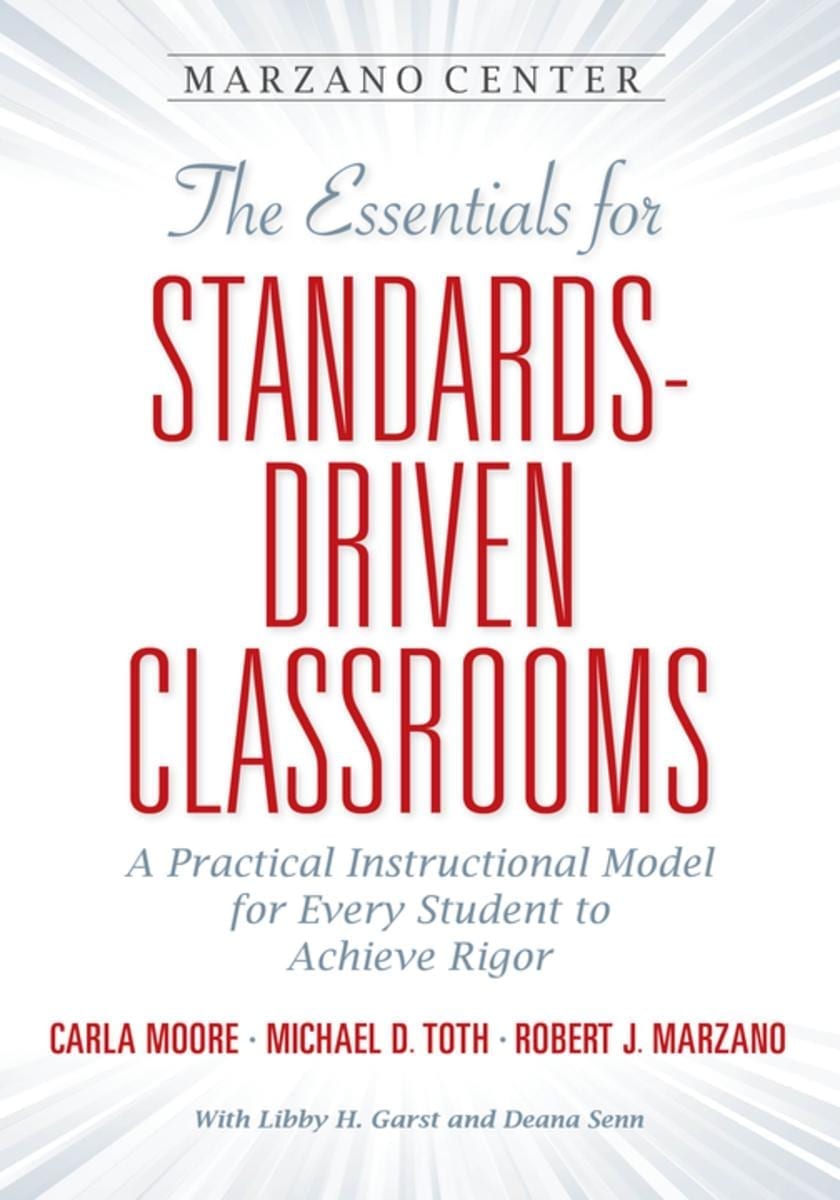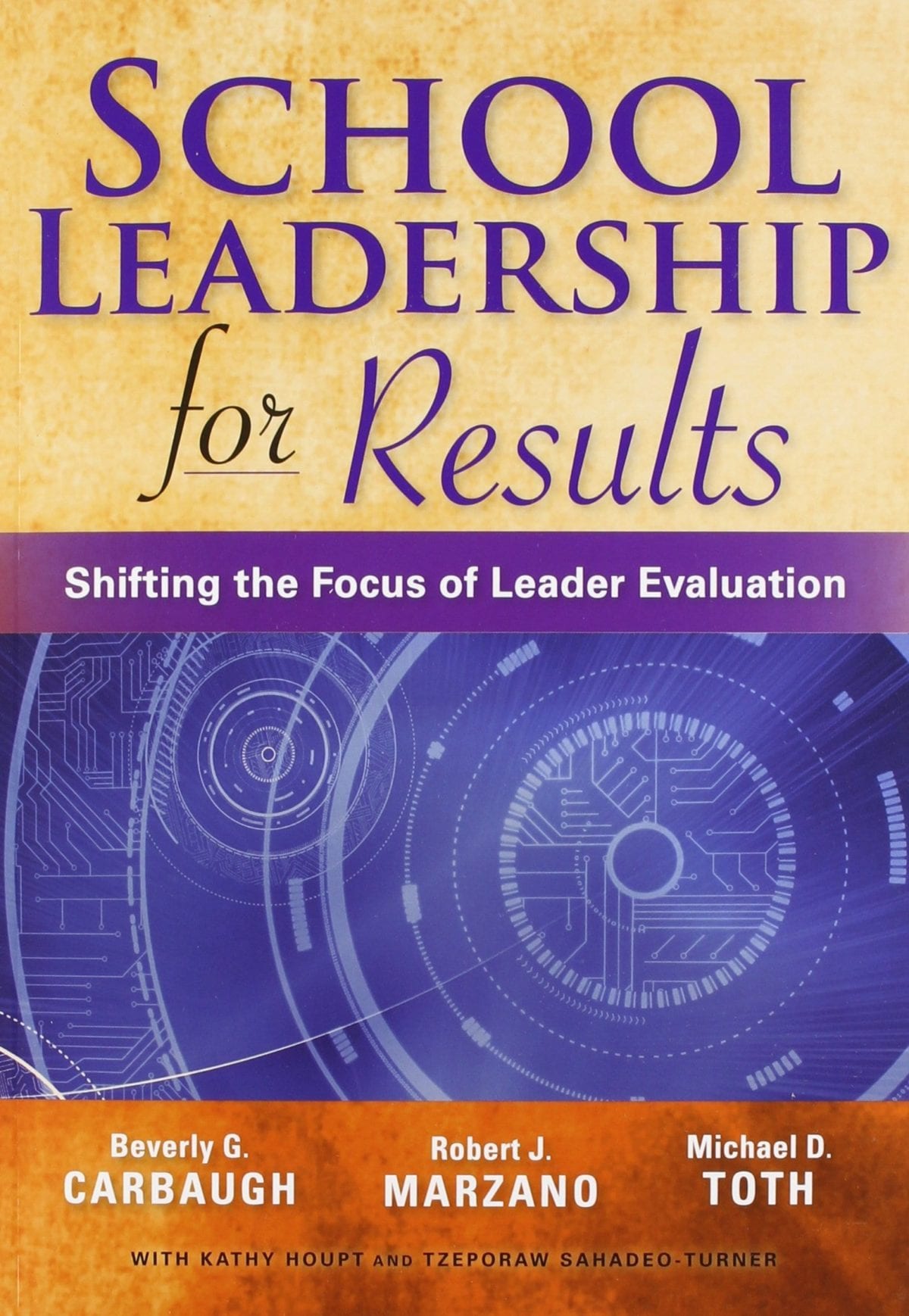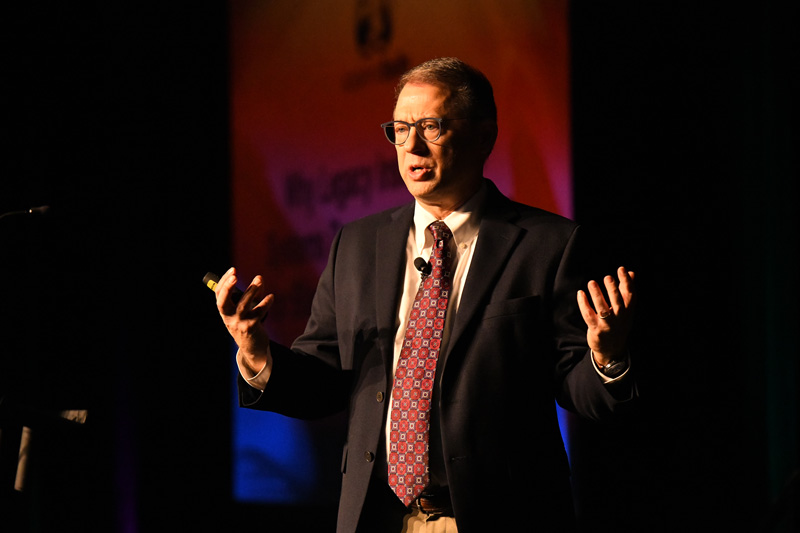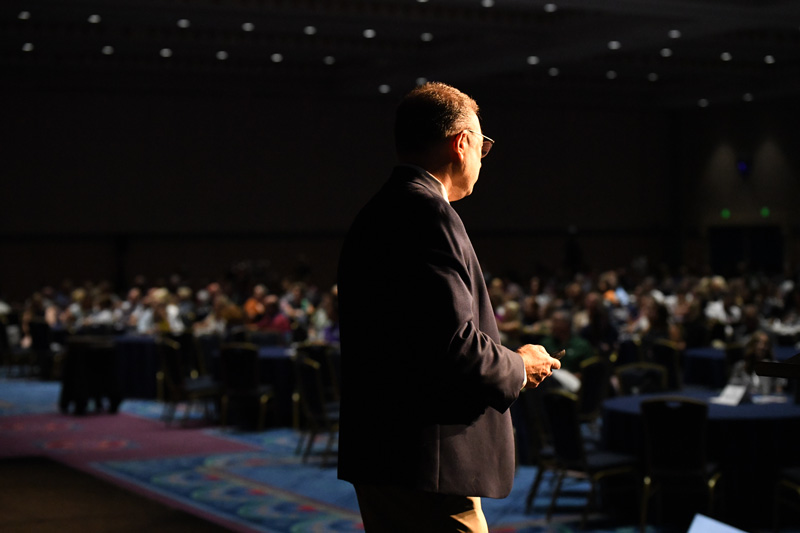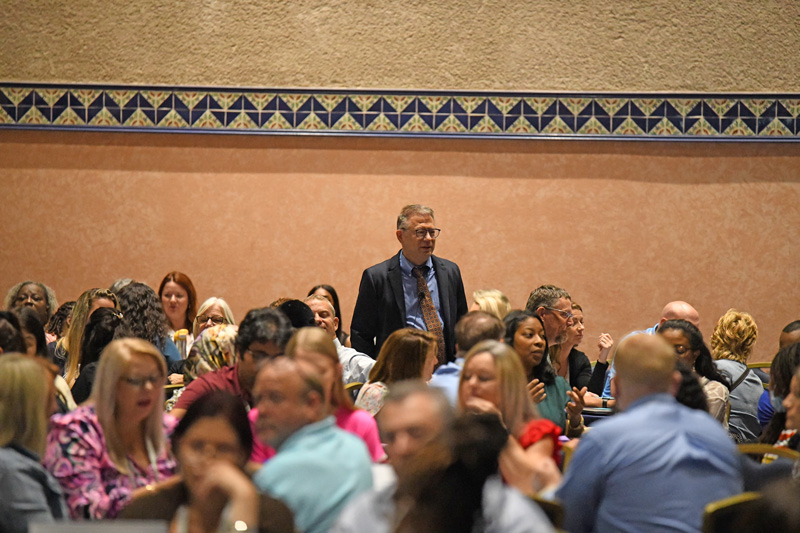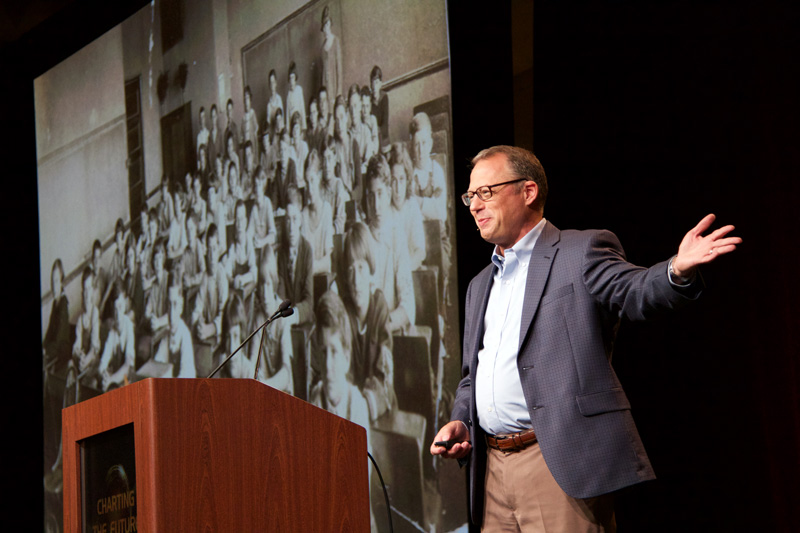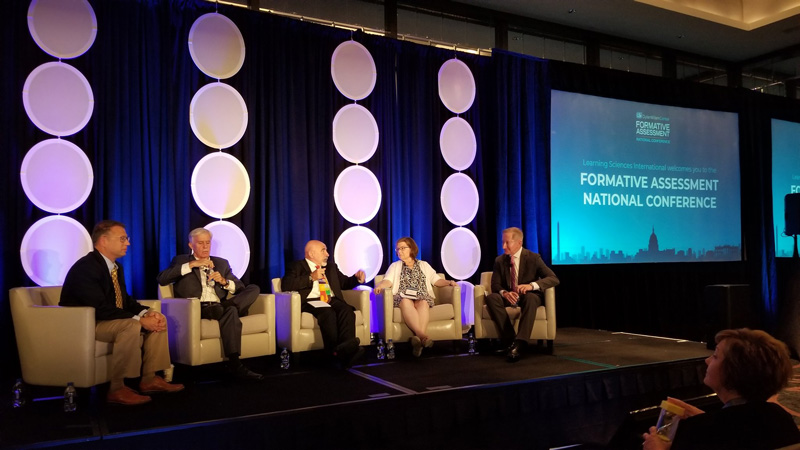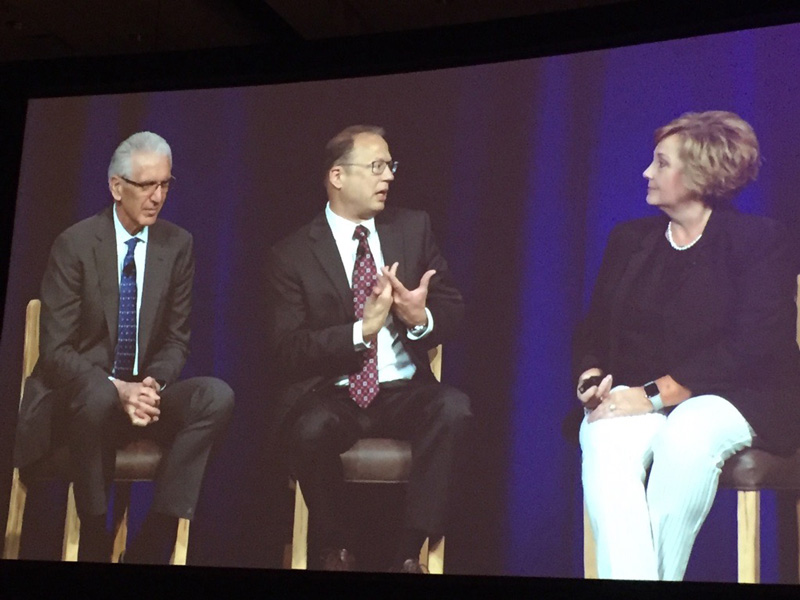Instructional Empowerment Founder:
Michael D. Toth
My story is not unique – millions of other children have had similar and worse experiences than mine. I grew up in poverty. My parents opted me out of preschool and kindergarten. I have no recollection of children’s books. I entered first grade with a lack of school readiness, not knowing my letters, numbers, or a single children’s tale or nursery rhyme.
When you are academically behind and don’t know the answers, do you raise your hand in class to be called on by the teacher? No, you pull back and try to hide – as I did. The confident learners participated. Not surprisingly, most of them came from more advantaged families. Even at a young age, I saw the more advantaged students gain even more advantages (academically and socially), as they had parents or guardians that were often more involved with the teachers and school, knew how to advocate for their children, monitored their homework, tutored them when they struggled with homework, and hired tutors when math got too hard. Their home environments were often more literature rich, with exposure to spoken vocabulary that was more varied and complex. They were more exposed to the enrichment of museums, art galleries, and vacation experiences that broadened their worldview. The rest of us were left to rely only on the school system for our needs. All too often, the classroom experience did not enrich us.
My family also moved often, and I experienced the disruption of moving from school to school, which affected me both socially and academically. After spending some years in a trailer park, my parents moved the trailer to a plot of land in the country and eventually built a house. We entered the lower middle class, experiencing some stability for a time before returning to poverty again. My worst experience was living homeless for a time. The shame I felt was unbearable, and I find it difficult to talk about to this day.
In addition to lacking the advantages and stability of some of my peers, my home life included personal trauma. My parents were excessively strict, believing in pain-based corporal punishment. I was “paddled” often. My father was most proud of a strip of conveyer belt (thick, hard rubber sandwiched with a center of steel or other fibers) he used as a paddle on bare skin to inflict maximum pain. My mother would inspect me after the beatings and give my father feedback if the skin was broken or welts might show bruises. I was told never to tell my teachers, or the government might take me away. That is a lot for a child.
For me, school should have been a refuge and a place of enrichment. But it was not. My school experience felt more like prison. I felt socially disconnected and as if I were just another part of an assembly line. The bell would ring, and I would go to the next class where the teacher would take roll and then lecture followed by independent practice. The bell would ring, then rinse and repeat. The independent practice was not helpful if you could not do the practice problems. If you asked another student for help, you were told to do your own work. To get extra assistance, you’d have to go up to the front desk where the teacher was either reading or correcting papers and get that scornful look like you were a bother.
I vividly remember one day when a student who lived next door to me was leaving high school very dejected. When I asked what had happened, he said the principal told him school was not for him and that he should drop out, which he did. I knew him well. He, too, had a troubled home life and struggled in school. I first discovered he could not read when we were at a church youth group taking turns reading out loud. This was long before No Child Left Behind, when many schools still sorted students into the “worthy” and “unworthy” categories, with no accountability for graduation rates. Content was taught and it was believed that if a student did not learn it, something was wrong with the student. Some students were even counseled to drop out, which is exactly what happened to my neighbor. I later heard he was in prison.
I turned out to be an outlier. Despite the lack of encouragement I received in school, I decided in my junior year that I wanted to go to college and become a writer. I met with my guidance counselor who, sighing, said it would be difficult but started backfilling some of the courses I was missing since I had been tracked into general education rather than college prep. I was grateful to be accepted at the local state university, and I thrived there. Later, I returned to that very university at a center within the College of Education and became a faculty grant director before leaving with my research and development team to form a company to support teachers to improve instruction.
I founded Instructional Empowerment with the mission to end generational poverty and eliminate achievement gaps through redesigned rigorous Tier 1 instruction that ensures deeper learning for ALL students. This mission is profoundly personal to me. My own experience in school revealed a system that worked for some students and not well for others. That system is all too alive today. The dynamic of students who do well and those who do not is still largely based on the advantage or disadvantage of home life. Every school can disaggregate their data by socioeconomic status and see the exact same achievement gap I personally had experienced. Achievement gaps most often translate into life gaps, denying opportunities of upward mobility to millions of students who struggle in school, and perpetuating the cycle of poverty.
Our legacy model of teacher-centered instruction and manufacturing mentality of overreliance on lecture and independent practice have required teachers to work too hard and left too many students trapped in ritualistic compliance instead of vibrant and enriching student-led team-based learning environments that research shows dramatically increase learning gains, proficiency, and close achievement gaps. Well-intentioned administrators try to fix this issue of unrelenting achievement gaps by adding more and more programs and initiatives each year. These do little to change teacher-directed instruction in the classroom and leave teachers and administrators with initiative fatigue, more work, and without the hoped-for results. This cycle of more initiatives and programs with only small bumps in student achievement maintains the status quo for too many students born into poverty.
I firmly believe that schools can be the great disruptors of poverty that America needs them to be. With the 2024 National Assessment of Education Progress (NAEP) results revealing a staggering 70-percent of students are not proficient in math and reading, our very national competitiveness is at stake along with the lives of millions of children. Public school is the first universal system children experience due to compulsory attendance. It is the only universal system that can change children’s lives at scale. But not if we maintain the socioeconomic achievement gaps that NAEP has measured for decades without significant change. To be the great disruptors of poverty, schools must disrupt the current instructional system of low rigor and ritualistic compliance in classrooms.
Educators are heroes that are burdened with an antiquated legacy system that was never designed to lift students out of poverty at scale. I see educators working far too hard with too little results and it burdens their hearts. But schools have the power to change this for educators and their students. I believe to get dramatically different results for ALL students, we must transform from the legacy instructional model all schools inherited to that of a Model of Instruction for Deeper Learning for ALL Students. Deeper learning should not be something only some students experience (typically those from more advantaged households) but should be something all students experience every day, in every classroom. This is why I founded Instructional Empowerment – to bring true empowerment to teachers and their students with a heavily research-based Model of Instruction for Deeper Learning. This model transforms every classroom into rigorous and enriching student-led, team-based learning environments that rapidly close achievement gaps for all students and provide a sense of belonging in a community of learners. Only when schools transition to a new model of instruction that works for ALL students will schools become the great disruptors of poverty their students and society need them to be.
I invite you to explore our many peer-reviewed research studies and case studies to see the dramatic impacts redesigned Tier 1 instruction has for all students. Teaching is one of the hardest professions on earth to do well. Our most powerful testimonials come from teachers who report the transformation in their students and how that has re-energized them. Every teacher wants the best for their students. Our passion is helping to empower teachers to achieve their purpose through empowered learners.
Biography
Founder and CEO of Instructional Empowerment | Multi-Award-Winning Education Author | Thought Leader | Speaker | Executive Coach to Superintendents and District Cabinets
Michael D. Toth is founder and CEO of Instructional Empowerment and leads IE’s Applied Research Center. He is also the author of the multi-award-winning book The Power of Student Teams with David Sousa; author of Who Moved My Standards; and co-author with Robert Marzano of The Essentials of a Standards-Driven Classroom, School Leadership for Results, and Teacher Evaluation that Makes a Difference. Most recently, he co-authored peer-reviewed research articles published in academic journals in collaboration with researchers Dr. Basileo, Dr. Lyons, Dr. Otto, and Dr. Vannini.
Michael is a keynote speaker at conferences and coaches and mentors superintendents on creating a bold instructional vision, designing and launching a high-functioning cabinet team, transforming Tier 1 core instruction, and leading systems-based school advancement.
Before Michael became the founder and CEO of Instructional Empowerment, he was the founder and CEO of another education services company, Learning Sciences International (LSI), for 20 years. He left LSI to create a new company that better aligns with his and his team’s mission of ending generational poverty and eliminating achievement gaps through redesigned rigorous Tier 1 instruction that ensures deeper learning for ALL students. Throughout Michael’s career, he has been privileged to collaborate with some of the top researchers and thinkers in education.
Years in education: 25+
Past key roles: President of the National Center for the Profession of Teaching, University Faculty Grant Director for research and development grants, and CEO.
“Michael Toth serves as a valuable thought partner and coach for me as the leader of Illinois’ second largest school system. His expertise in both systemic change, coupled with his demonstrated strategy of closing achievement gaps through student academic teaming where students become the owners of their own learning, has refueled my tank to change public education as we emerge from a global pandemic.”
Dr. Tony Sanders
Former Superintendent of School District U-46
Current Illinois State Superintendent of Education
Books
Book Awards
The Power of Student Teams
- Silver medal (Reference category) – Florida Authors and Publishers Association (FAPA) book awards – 2020
- Bronze medal (Education Commentary/Theory category) – Independent Publisher Book Awards (“IPPY”) – 2020
- Top 5 finalist (Education/Academic category) – American Book Fest book awards – 2019
Who Moved My Standards
- Top 5 finalist (Education/Academic category) – American Book Fest book awards – 2016
The Essentials for Standards-Driven Classrooms
- Top 5 finalist (Education/Academic category) – American Book Fest book awards – 2017
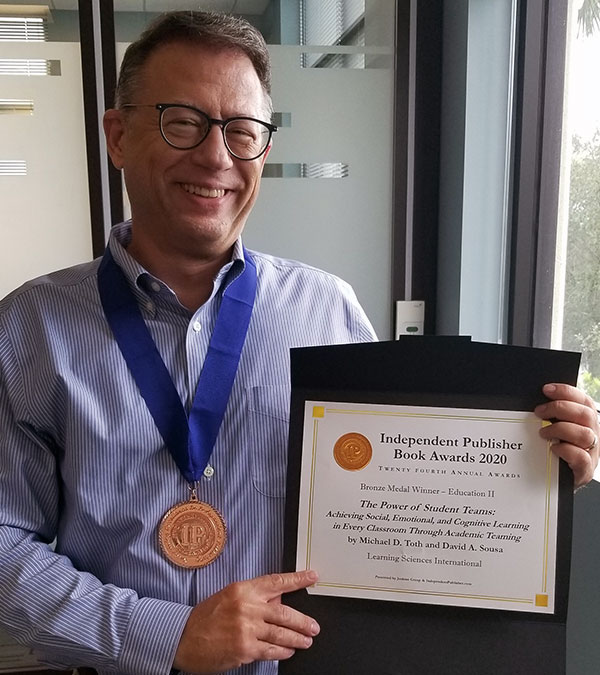
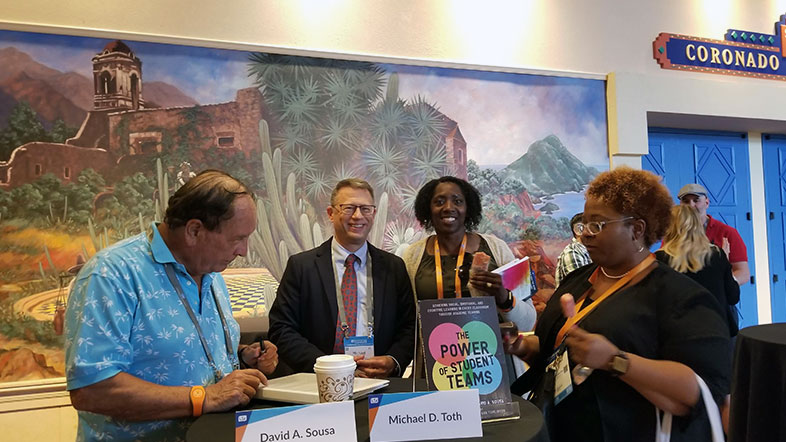
Reports and Articles
Leading Indicators of Academic Achievement: Investigating the Predictive Validity of an Observation Instrument in a Large District
The Role of Self-Efficacy, Motivation, and Perceived Support of Students’ Basic Psychological Needs in Academic Achievement
Models of Instruction
Instructional Equity and Access in a Pandemic
Increasing Equity and Achievement by Empowering Students
Equitable Instruction
Neuroscience Supports Successful Student Academic Teams
Empowered Students Lead and Learn
A State Level Analysis of the Marzano Teacher Evaluation Model: Predicting Teacher Value-Added Measures with Observation Scores
Presentations
Michael D. Toth is a keynote speaker at conferences. He has also served on education panels in person and virtually. As a thought leader, Michael has moderated high-level events such as roundtable discussions between some of the nation’s top superintendents and researchers on topics like preparing for a return to the classroom after the COVID pandemic and reimagining assessment systems and schools of the future.
Michael’s presentation topics include:
- Launching a High-Functioning Cabinet to Achieve Your Goals
- The Science of Creating a High-Functioning Senior Leadership Team
- Why Legacy Instructional Systems Dampen Life Chances for Black and Brown Students
- Unlocking the Power of Productive Struggle
- Developing a Bold Instructional Vision for Strategic Alignment
Speaking Engagement Highlights
- Basileo, L.D., Lyons, M.E., Toth, M.D., Majstorovic, L., Isham, J., & Lenart, C. (September, 2024). Scaling innovation for deeper learning: Lessons learned from early adopters. Special Conference on Classroom Assessment (National Council on Measurement in Education). Chicago, Illinois.
- Toth, M.D. (June, 2024). Discover the power of why [Keynote]. Building Expertise Conference. Orlando, Florida.
- Toth, M.D. (June, 2024). Leveraging the School Instructional Maturity Model (SIMM) to achieve your vision for instruction [Conference Session]. Building Expertise Conference. Orlando, Florida.
- Toth, M.D. (June, 2023). Unlocking the power of collaborative productive struggle [Keynote]. Building Expertise Conference. Orlando, Florida.
- Toth, M.D. (June, 2023). The science of creating a high-functioning senior leadership team [Conference Session]. Building Expertise Conference. Orlando, Florida.
- Toth, M. D. (2023, February). Launching a high-functioning cabinet to achieve your goals [Conference Session]. National Conference on Education by American Association of School Administrators (AASA). San Antonio, Texas.
- Toth, M. D. (2022, December). Why legacy instructional systems dampen life chances for Black and Brown students [Conference Session]. The National School Board Association (NSBA)’s CUBE Conference (Council for Urban Boards of Education). Miami, Florida.
- Toth, M. D. (2022, June). Why legacy instructional systems dampen life chances for Black and Brown students [Keynote Address]. Building Expertise Conference. Orlando, Florida.
- Wiliam, D., Reed-Marshall, T., O’Connor, K., McTighe, J., Louie, L., & Toth, M. D. (2022, April). What does it mean for assessment to be equitable? (Different visions of equitable-ness) [Panel Discussion]. Formative Assessment International Conference. Virtual.
- Wiliam, D., Zavitkovsky, P., Louie, L., & Toth, M. D. (2022, April). Fireside chat with Dylan Wiliam [Panel Discussion]. Formative Assessment International Conference. Virtual.
- Toth, M. D. (2021, September). Why instructional systems dampen life chances for Black and Brown students [Conference Session]. The National School Board Association (NSBA)’s CUBE Conference (Council for Urban Boards of Education). Atlanta, Georgia.
- Toth, M. D. (2021, June). Agency – the key to student motivation and engagement [Keynote Address]. Building Expertise Conference. Virtual.
- Toth, M. D. (2021, June). The power of student teams: Achieving social, emotional, and cognitive learning [Conference Session]. Association for Supervision and Curriculum Development (ASCD) Conference. Virtual.
- Toth, M. D., Carvalho, A., Grego, M., Hinojosa, M., & Lolli, E. (2021, February) Superintendent roundtable: Preparing for the 2021-22 school year [Panel Discussion]. LSI Applied Research Center. Virtual.
- Toth, M. D. (2020, August). Equity, access & student agency [Webinar]. National School Board Association (NSBA). Virtual.
- Toth, M. D., & Saelens, P. (2020, February). Achieving social, emotional, and cognitive learning through academic teaming [Conference Session]. National Conference on Education by American Association of School Administrators (AASA). San Diego, California.
- Brookhart, S., Guskey, T., McTighe, J., Toth, M. D., & Wiliam, D. (2019, July). National panel on grading for learning [Panel Discussion]. Formative Assessment National Conference. Baltimore, Maryland.
- Toth, M. D. & Sousa, D. A. (2019, June). The power of student teams: Achieving social, emotional, and cognitive learning [Keynote Address]. Building Expertise Conference. Orlando, Florida.
- Toth, M. D. (2019, March). Transforming schools for new economy skills and rigor [Conference Session]. Association for Supervision and Curriculum Development (ASCD) Conference. Chicago, Illinois.
- Toth, M. D., & Grover, T. (2019, March). Transforming core instruction: Student academic teams for SEL and rigor [Conference Session]. The National School Board Association (NSBA) National Conference. Philadelphia, Pennsylvania.
- Toth, M. D., & Grover, T. (2019, February). Transforming core instruction: Student academic teams for SEL and rigor [Conference Session]. National Conference on Education by American Association of School Administrators (AASA). Los Angeles, California.
- Toth, M. D., & Grover, T. (2019, January). Transforming core instruction: Student academic teams for SEL and rigor [Conference Session]. The National Association of ESEA State Program Administrators Conference. Kansas City, Missouri.
- Brookhart, S., McTighe, J., Stiggins, R., Toth, M. D., & Wiliam, D. (2018, July). Charting the future of school district assessment reform [Panel Discussion]. Formative Assessment Conference. Baltimore, Maryland.
- Toth, M. D., & Dujon, A. (2018, December). Transforming schools for new economy skills and rigor [Conference Session]. Learning Forward National Conference. Dallas, Texas.
- Basileo, L. D., & Toth, M. D. (2017, April). Turning around chronically low-performing schools [Conference Session]. American Educational Research Association (AERA) Annual Meeting. San Antonio, Texas.
“Great keynote!! Thank you so much for all the research information. Thank you for your vulnerability and your passion for students!”
– Attendee at Building Expertise Conference 2022
“Michael Toth has the magical ability of taking an extremely complex learning solution of building a stellar leadership team and breaking it down into comprehensive, achievable chunks. Excited to see what a few shifts in my leadership practices will do for our team – and more importantly – our district’s compelling purpose!”
– Attendee at Building Expertise Conference 2022
“Michael is extremely knowledgeable! I really feel like I have a framework for assessing the effectiveness of the teams in my building. Excellent session, great use of my time and I loved the interactive nature of this session. Thank you, Michael!”
– Attendee at Formative Assessment International Conference 2020
Licenses and Certifications
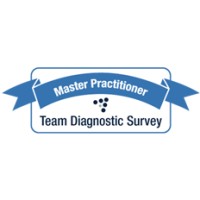
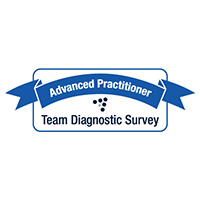
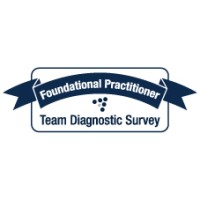
Schedule Michael as a Keynote Speaker or Executive Coach
Contact Michael D. Toth for keynote speaking engagements or as an executive coach for superintendents and district cabinets.

